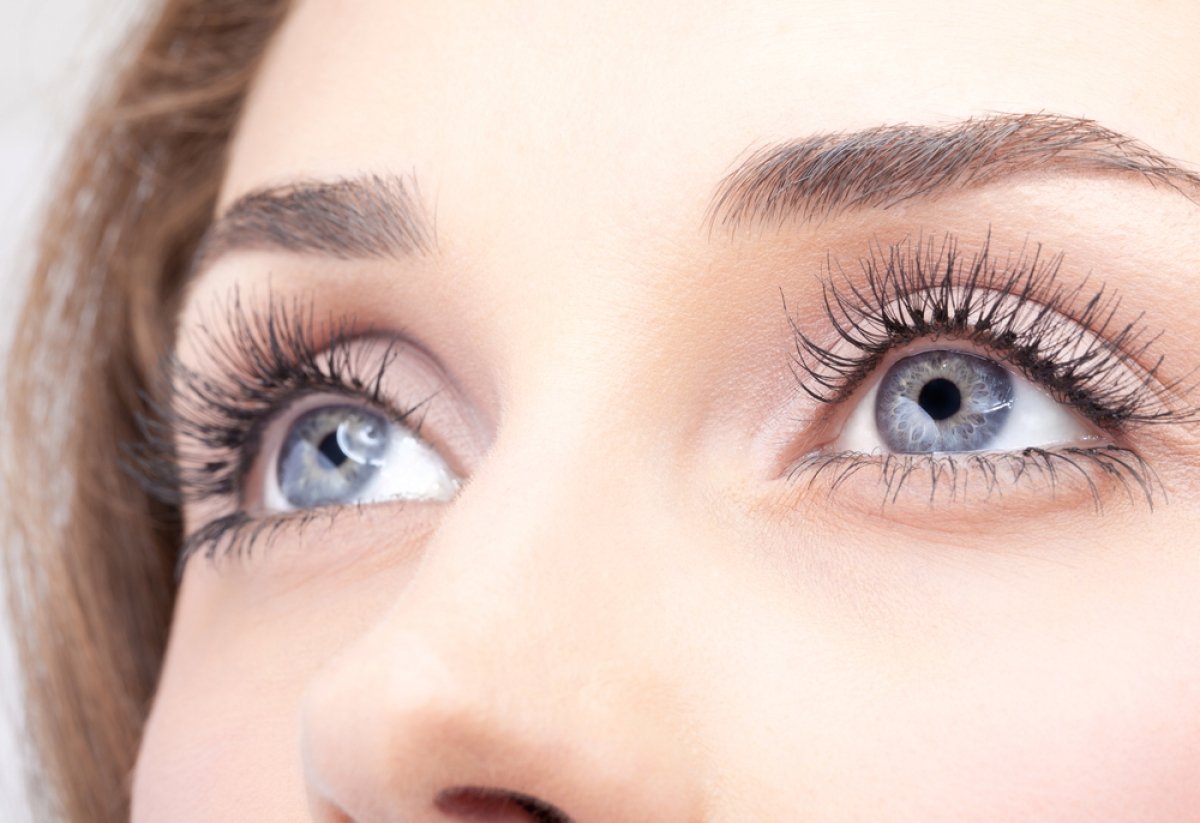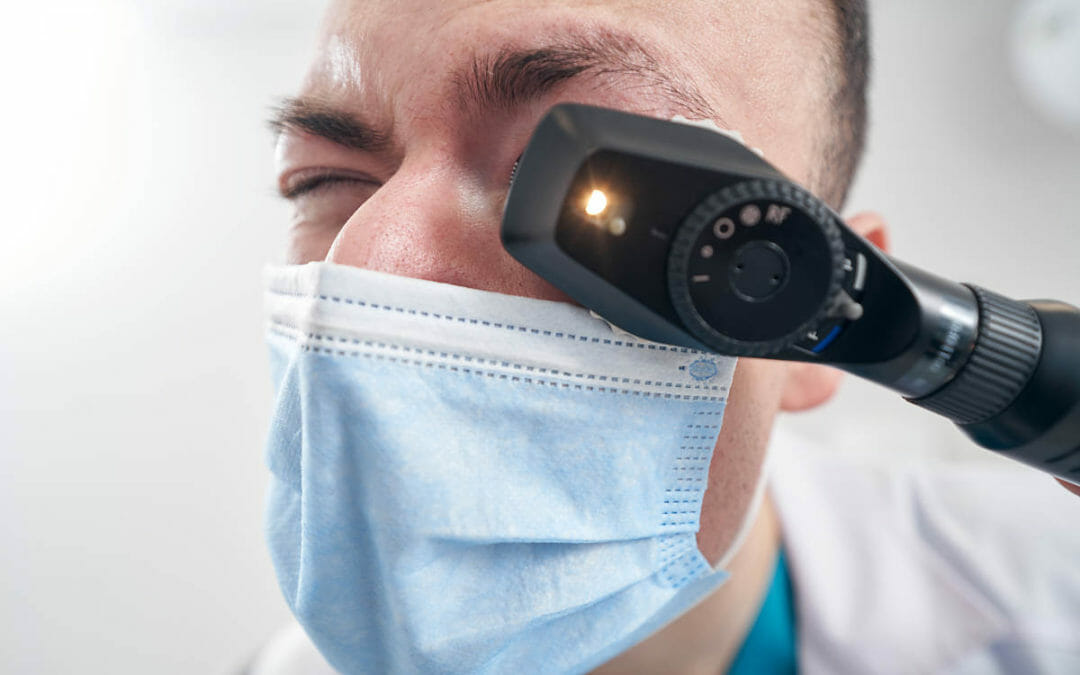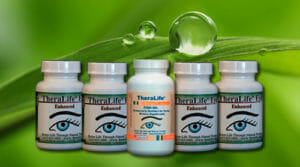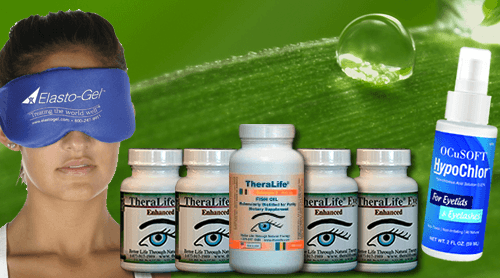Curing Uveitis Naturally: A Comprehensive Guide To Alternative Therapies
Uveitis is a chronic inflammatory condition of the eye that affects millions of people worldwide. While conventional treatments for this debilitating disorder are often effective, many patients choose to explore alternative therapies as an option.
This article presents a comprehensive guide to curing uveitis naturally by exploring various natural treatment options available. A review of current research and evidence-based studies on uveitis will be provided, along with detailed information about potential risks and benefits associated with each approach.
Additionally, recommendations regarding lifestyle changes and dietary modifications that may help alleviate symptoms will be discussed. The aim of this paper is to provide readers with a better understanding of possible natural therapies for managing their uveitis symptoms in order to make informed decisions about their healthcare choices.
How TheraLife Can Help Uveitis – All Natural Therapy That Works.
Overview Of Uveitis And Its Symptoms
Uveitis (UI) is an inflammatory eye problem that can cause pain, blurry vision and even blindness if left untreated. It’s a serious condition affecting hundreds of thousands worldwide every year. Yet, there are natural treatments available that offer promising results for those suffering from uveitis.
In this comprehensive guide to alternative therapies, we’ll explore the mind-body connection in relation to UI, as well as lifestyle modifications one might consider when seeking relief from its symptoms. We’ll also review evidence-based research on UI so readers can make informed decisions about their own treatment plans.
The importance of understanding the mind-body connection when it comes to managing UI cannot be overstated. Stress has long been linked to inflammation in general which means reducing stress levels may help reduce incidents of recurrent flare ups associated with uveitis.
Lifestyle modifications such as proper nutrition, adequate sleep and regular exercise can go a long way towards mitigating the effects of chronic inflammation caused by uveitis.
As we progress through this guide discussing various aspects of treating UI naturally, readers will gain knowledge needed to develop effective strategies tailored specifically for them and their unique needs. By taking into account both traditional approaches and up-and-coming alternatives, individuals affected by this ailment have access to multiple options when it comes to finding relief from its symptoms and hopefully restoring normalcy back into life!
Review Of Evidence-Based Research On Uveitis
Uveitis is an inflammatory eye disorder that can have serious consequences for vision if left untreated.
Diagnosing UI involves physical examination and imaging tests to rule out other potential causes of eye inflammation.
Treatment options for UI include corticosteroids, immunosuppressants, and biologics, depending on the type and severity of the disease.
Alternative therapies for UI, such as nutritional supplements, herbal medicine, and lifestyle modifications, have shown some promise, however more research is needed to determine their efficacy.
Uveitis Diagnosis
Uveitis diagnosis is a crucial step in the process of treating uveitis.
To accurately diagnose uveitis, it is important to have an eye exam performed by a qualified ophthalmologist or other healthcare professional who specializes in the field.
During this examination, the doctor will look for any signs of inflammation and infection within the eyes and check if there is any damage to tissues that could be caused by UI.
Additionally, they may use imaging techniques such as ultrasound or MRI scans to get a better view of the condition inside the eye.
It is also important to consider potential triggers for UI; stress management can play an essential role in limiting flare-ups and aiding with recovery from episodes of active disease.
With proper diagnosis and treatment, patients can take steps towards managing their symptoms of UI naturally.
Therefore, it is imperative for physicians and patients alike to understand the importance of accurate diagnosis when considering natural treatments for their individual cases.
Uveitis Treatment Options
Once a diagnosis of UI has been established, it is important to consider the treatment options available.
There are both conventional and natural approaches that can be used in combination or separately depending on the severity and type of UI.
Conventional treatments aim to reduce inflammation and prevent further damage, while natural therapies work with the body’s innate healing mechanisms by addressing underlying causes such as stress and lifestyle factors.
One such approach focuses on the mind-body connection; relaxation techniques have been shown to help manage symptoms of uveitis naturally, including reducing pain levels and improving eye health.
In addition to these practices, dietary changes may also be beneficial for managing flare ups, along with other integrative approaches such as acupuncture and massage therapy.
All of these treatments have potential benefits when used alongside traditional medical therapies for optimal management of UI.
Exploring Potential Risks And Benefits Of Alternative Therapies
When considering alternative therapies for the management of uveitis symptoms, it is important to understand both potential risks and benefits.
A holistic approach that looks at physical and emotional aspects of treatment can be beneficial in long-term symptom relief. This includes recognizing the mind body connection as well as lifestyle changes that incorporate stress reduction techniques such as yoga, meditation or mindful movement practices.
Certain treatments may include dietary supplements with herbs, vitamins, minerals or other natural substances which require caution due to lack of regulation. It is also important to research any potential interactions between these supplements and prescribed medications for underlying diseases associated with UI.
Additionally, although many people report success using complementary therapies, there are limited studies on their effectiveness and safety when used alone or combined with traditional medical care.
It is essential to assess all options before beginning a course of action since even those considered ‘natural’ can have side effects including allergic reactions or worsening of existing conditions. With this in mind, it becomes clear why understanding the potential risks and benefits associated with different types of alternative therapy is so important.
Moving forward then, we will explore some possible dietary changes to manage uveitis symptoms.
Dietary Changes To Manage Uveitis Symptoms
1. Eating anti-inflammatory foods is a key component of dietary change for those seeking to manage their uveitis symptoms.
2. Certain foods can exacerbate symptoms, and understanding which to avoid is an important part of a balanced diet.
3. Supplements and vitamins are often recommended to those seeking to manage their uveitis symptoms naturally, as they can help to reduce inflammation.
4. Research has shown that certain supplements can be beneficial in reducing inflammation and providing relief from uveitis symptoms.
5. Vitamins and minerals are important for maintaining a healthy balance of nutrients and can help to reduce the risk of flare-ups.
6. Identifying and avoiding foods that are known to be irritants can help to reduce inflammation and manage uveitis symptoms.
Eating Anti-Inflammatory Foods
Eating a balanced, anti-inflammatory diet is an important part of managing uveitis symptoms.
Research suggests that reducing stress and making physical activity a regular part of one’s lifestyle can help reduce the severity and frequency of flare ups in those living with the disease.
Eating foods that are rich in omega-3 fatty acids, such as salmon or walnuts, may also be beneficial for people with uveitis due to their potential anti-inflammatory properties.
Additionally, avoiding processed foods and sugar has been linked to improved symptom management in individuals suffering from UI.
Reducing consumption of red meat, dairy products, fried foods, trans fats and alcohol can further support reduction in inflammation associated with UI.
Ultimately, dietary changes should form part of an overall approach to natural treatment for this condition; through careful selection of what we eat it is possible to maintain good health while controlling our symptoms.
Avoiding Irritants
In addition to dietary changes, avoiding allergens and reducing stress can also be beneficial for managing UI symptoms.
Allergens such as dust mites, pollen, animal dander, mold spores and certain foods are known triggers of flare-ups in those with the condition.
It is therefore important to identify any potential sources of irritants in the environment or diet which may exacerbate symptoms.
Reducing exposure to these substances by using air purifiers and allergen barriers on beds and furniture may help reduce inflammation associated with this autoimmune disorder.
Without a doubt, lowering one’s level of stress can result in improved management of UI due to its ability to induce physiological responses that promote inflammation.
Therefore, engaging in activities that support good mental health such as meditation, deep breathing exercises and yoga should form part of an overall approach to natural treatment for this condition.
These practices have been found to benefit both physical and psychological well being; through their implementation it is possible to maintain good health while controlling our symptoms.
Supplements And Vitamins
In addition to dietary changes and avoiding allergens, supplements and vitamins can also be beneficial for managing uveitis symptoms.
Studies have shown that certain probiotic strains are able to reduce inflammation associated with this autoimmune disorder, while lifestyle changes such as taking regular exercise may help improve the overall health of those affected by it.
Vitamins are also important in maintaining good vision; Vitamin A helps protect against damage caused by free radicals, while Vitamin C is essential in supporting healthy eye tissue.
Therefore, an approach which takes into account both diet and supplementation is likely to yield the best results when looking at ways to manage a diagnosis of UI naturally.
Herbal Remedies For Uveitis
Dietary changes can help manage the symptoms associated with uveitis. These include avoiding processed foods and eating a balanced diet that is high in fruits and vegetables, as well as reducing one’s intake of sugar and salt. Eating healthy also helps keep inflammation under control, which is key to managing uveitis symptoms.
In addition to dietary changes, alternative therapies such as exercise therapy and yoga practice have been found to be beneficial for those suffering from uveitis:
* Exercise Therapy – Regular aerobic activity has been shown to reduce inflammation levels and improve overall health by stimulating blood circulation throughout the body. It can also assist with pain management when dealing with chronic conditions like uveitis.
* Yoga Practice – Practicing yoga regularly can increase flexibility, strength, balance, and relaxation while minimizing stress hormones in the body; all factors that are important when treating an autoimmune disorder like uveitis. Additionally, it may help alleviate some of its symptoms through improved breathing techniques and meditation practices.
* Acupuncture – This ancient Chinese healing technique involves inserting thin needles into specific points on the skin to stimulate energy flow within the body. Research shows acupuncture could potentially reduce symptom severity due to its ability to regulate immune responses in people living with chronic inflammatory diseases like UI.
Alternative remedies provide another option for those looking for ways to manage their condition holistically without resorting to pharmaceutical medications or surgery.
Homeopathy for uveitis treatment is another approach that seeks to address underlying imbalances in order to bring about lasting relief from its symptoms.
Homeopathy For Uveitis Treatment
Uveitis is a serious eye condition that can cause vision loss if left untreated. Alternative therapies have been used to treat the symptoms of uveitis, including homeopathy.
Homeopathic medicine seeks to stimulate the body’s natural healing processes and restore balance within the system. The goal of homeopathic treatments for uveitis is to reduce inflammation, pain, and other symptoms associated with this medical condition.
Homeopathy has become increasingly popular as an alternative treatment method due to its focus on holism and treating the individual rather than just the disease or symptom. Homeopaths use dilute concentrations of herbs, minerals, plants, and animals in their remedies which are tailored specifically for each patient based upon their unique needs and conditions.
Commonly prescribed homeopathic remedies include Arnica montana (wolf’s bane), Natrum muriaticum (table salt) Hypericum perforatum (St John’s Wort), Phosphorus (phosphorus), Aconitum napellus (monkshood) and Belladonna (deadly nightshade). In addition to these traditional forms of homeopathy, some practitioners also offer energy healing such as reiki or acupuncture.
Other non-traditional methods like aromatherapy may be employed to assist in relaxation during treatment sessions. The effectiveness of homeopathy for treating uveitis remains inconclusive due to limited scientific evidence supporting it; however many patients report feeling improved after receiving homeopathic care.
Further research should be conducted into this area in order to determine how best to utilize it when managing this difficult condition. Transitioning now from discussing homeopathy, acupuncture is another form of alternative therapy often utilized when seeking relief from uveitis symptoms.
Acupuncture For Uveitis Relief
Uveitis is a medical condition that can be difficult to treat without the use of powerful medications, but what if there was another way?
Acupuncture for uveitis relief may sound like an unlikely option, yet it has been used in traditional Chinese medicine for centuries and is gaining recognition as a viable alternative therapy.
The primary benefit of acupuncture for uveitis sufferers lies in its ability to address both physical symptoms and underlying causes.
By stimulating specific points on the body, acupuncture helps correct imbalances between mind and body while also relieving pain and inflammation associated with uveitis.
Additionally, lifestyle modifications such as diet changes, stress reduction techniques, and exercise are often recommended alongside acupuncture treatment to further improve outcomes.
Though more research is needed to understand how exactly acupuncture works to reduce discomfort associated with uveitis, these treatments can offer many patients much-needed relief while they explore other natural options such as nutritional supplements.
Further investigations into this ancient practice could provide insight into new ways of treating uveitis naturally.
As we look ahead towards improved methods for managing our health holistically, acupuncture offers hope of better symptom management without resorting to pharmaceuticals or invasive procedures.
Nutritional Supplements For Uveitis
Nutritional supplements may be beneficial for treating uveitis, though many of the recommended remedies are not well studied or documented in scientific literature. Various herbs and dietary changes can help reduce inflammation associated with uveitis.
Ayurvedic remedies such as turmeric, ginger, and boswellia have been used to treat a variety of inflammatory conditions, including those related to uveitis. These natural products contain powerful anti-inflammatory compounds that work by blocking certain pathways in the body that lead to inflammation.
Additionally, lifestyle modifications like avoiding alcohol and processed foods can also improve symptoms of uveitis. In addition to ayurvedic remedies and lifestyle modifications, other nutritional supplements may be useful in controlling symptoms of uveitis.
Research suggests that fish oil capsules containing omega-3 fatty acids can reduce levels of pro-inflammatory cytokines which are involved in causing eye inflammation associated with uveitis. In particular, two types of fatty acids found in fish oil (eicosapentaenoic acid [EPA] and docosahexaenoic acid [DHA]) appear to be particularly effective at reducing symptoms associated with the condition.
Moreover, some studies suggest that taking vitamin D supplements might also be helpful for improving ocular health among people suffering from uveitis. Overall, it appears that nutritional supplements may offer promise as part of an overall treatment strategy for managing the signs and symptoms of uveitis.
While more research is needed to understand how these therapies interact with each other and their long-term effects on vision health, they represent promising options for people who want to explore alternative treatments for this chronic condition without relying solely on medications prescribed by a doctor.
Frequently Asked Questions
How Long Will It Take For Alternative Therapies To Cure Uveitis?
The impact of diet and lifestyle adjustments on the length of time it takes for alternative therapies to successfully cure uveitis is astounding!
While some individuals may experience relief from symptoms quickly, others could take months or even years before all signs of their condition have fully dissipated.
Ultimately, the duration of treatment depends largely upon the severity of one’s individual case and must be carefully monitored by a specialist in natural uveitis treatments.
Are There Any Side Effects Associated With Using Alternative Therapies?
The use of alternative therapies, such as herbal remedies and dietary changes, to treat uveitis is becoming increasingly popular. However, it is important to understand the potential risks associated with these treatments.
While most individuals do not experience any adverse effects from using natural remedies for uveitis, some may suffer from minor side effects including allergic reactions or stomach upset. Furthermore, those who are taking medications or undergoing other forms of treatment should consult a physician before incorporating any herbal remedy into their regimen.
As always, caution should be taken when introducing new elements into a therapeutic plan in order to ensure safety and effectiveness.
Are There Any Other Lifestyle Changes That Can Help Manage Uveitis Symptoms?
Do lifestyle changes present an effective way to manage uveitis symptoms?
Exercise, diet modifications, and other alterations in daily routine may help reduce the severity of inflammation associated with uveitis.
Evidence suggests that regular physical activity can provide a number of benefits for people living with this condition, including improved sleep quality and reduced fatigue levels.
Additionally, dietary adjustments may also be beneficial; certain foods have been identified as being potentially helpful in relieving some of the pain caused by uveitis.
As such, it is important to consider making appropriate changes to one’s lifestyle when seeking natural ways to control their condition.
Are There Any Over-The-Counter Treatments For Uveitis?
Over-the-counter treatments for uveitis are available in the form of herbal remedies and acupressure.
Herbal remedies such as turmeric, ginger, or boswellia have been used to reduce inflammation associated with uveitis.
Similarly, several studies have found that certain acupressure points can be beneficial when it comes to managing pain related to this condition.
However, these treatments should only be utilized after consulting a doctor about their appropriateness for an individual’s specific case of uveitis.
What Is The Best Alternative Therapy For Treating Uveitis?
The best alternative therapy for treating uveitis remains the subject of debate.
While some may advocate the use of acupuncture points, others suggest yoga poses as a viable option.
Recent studies have indicated that both therapies can provide relief from symptoms associated with uveitis; however, further research is needed to definitively determine which approach yields superior results.
Regardless of which path one chooses, it is important to consult a qualified professional prior to beginning any type of treatment plan in order to ensure safety and maximize effectiveness.
Conclusion
Conclusively, alternative therapies can be a promising option for treating uveitis. Not only do they offer safe and effective treatment with minimal side effects, but the right combination of lifestyle changes and over-the-counter treatments could prove to be life changing in terms of symptom management.
The best way to determine which therapy works best is by consulting with an experienced holistic healthcare practitioner who will customize a plan specifically tailored to one’s needs. With their help, it is possible that curing uveitis naturally may become an achievable reality – like finding a needle in a haystack!
References
1. Jaffe GJ, Dick AD, Brézin AP, et al: Adalimumab in patients with active noninfectious uveitis. N Engl J Med 8;375(10):932-43, 2016. doi: 10.1056/NEJMoa1509852
2. Lee J, Koreishi AF, Zumpf KB, et al: Success of weekly adalimumab in refractory ocular inflammatory disease. Ophthalmology S0161-6420(20)30333-X, 2020. doi: 10.1016/j.ophtha.2020.04.009
3. Kruh JN, Yang P, Suelves AM, et al: Infliximab for the treatment of refractory noninfectious uveitis: A study of 88 patients with long-term follow-up. Ophthalmology 121(1):358-364, 2014. doi: 10.1016/j.ophtha.2013.07.019





